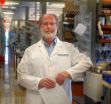(Press-News.org) Researchers at the Center for Infection and Immunity (CII) at Columbia University's Mailman School of Public Health and at the Harvard Medical School report that children with autism and gastrointestinal disturbances have altered expression of genes involved in digestion. These variations may contribute to changes in the types of bacteria in their intestines.
Full study findings are reported online in the journal PLoS ONE.
Autism, which is defined by impairments in verbal and non-verbal communication, social interactions, and repetitive and stereotyped behaviors, affects approximately 1% of the population. Many children with autism have gastrointestinal problems that can complicate clinical management and contribute to behavioral disturbances. In some children, special diets and antibiotics have been associated with improvements in social, cognitive and gastrointestinal function.
The investigators found that children diagnosed with autism and gastrointestinal disturbances have abnormalities in levels of genes for enzymes that break down sugars and for molecules that transport them from the lumen of the intestine into the blood. These variations were also associated with changes in the bacterial composition of the intestine.
The researchers examined biopsies from 22 patients, 15 diagnosed with autism and seven typically developing children. They used real-time PCR to measure gene expression and genetic sequencing techniques to characterize the bacteria present in the intestines of each child.
Brent Williams, PhD, research scientist at CII and first author of the study, noted that, "whereas others have looked at bacterial composition of feces, our group was the first to characterize mucosal communities and to link findings to expression of genes important in carbohydrate metabolism and transport."
"The findings are consistent with other research suggesting that autism may be a system-wide disorder, and provide insight into why changes in diet or the use of antibiotics may help alleviate symptoms in some children," added Mady Hornig, MD, Director of Translational Research at the Center for Infection and Immunity.
"Although caution in interpretation is indicated because the sample size is small, our findings nonetheless provide a framework for developing and testing new hypotheses concerning the role of malabsorption and microflora in autism and related disorders," said Ian Lipkin, MD, Director of the Center for Infection and Immunity.
INFORMATION:
The study was supported by the National Institutes of Health, Google.org, the Department of Defense and Cure Autism Now.
About Columbia University's Mailman School of Public Health
Founded in 1922 as one of the first three public health academies in the nation, Columbia University's Mailman School of Public Health pursues an agenda of research, education, and service to address the critical and complex public health issues affecting New Yorkers, the nation and the world. The Mailman School is the third largest recipient of NIH grants among schools of public health. Its over 300 multi-disciplinary faculty members work in more than 100 countries around the world, addressing such issues as preventing infectious and chronic diseases, environmental health, maternal and child health, health policy, climate change & health, and public health preparedness. It is a leader in public health education with over 1,000 graduate students from more than 40 nations pursuing a variety of master's and doctoral degree programs. The Mailman School is also home to numerous world-renowned research centers including the International Center for AIDS Care and Treatment Programs (ICAP), the National Center for Disaster Preparedness, and the Center for Infection and Immunity. For more information, please visit www.mailman.columbia.edu
END
An expert panel speaking on Capitol Hill today demonstrated that the Great Recession has had a disproportionately negative impact on low-income older workers, although programs such as the federal Senior Community Service Employment Program (SCSEP) have managed to provide some valuable benefits to this disadvantaged demographic group.
The congressional briefing — held on the eve of National Employ Older Workers Week — was titled, "Older Workers: Multiple Returns on Our Public Investment." It was sponsored by The Gerontological Society of America (GSA) and the American ...
A team of scientists at the CSIC has shown that temperature can play a critical role in the control of splicing. The team led by Josep Vilardell, ICREA scientist at the CSIC's Molecular Biology Institute of Barcelona, has demonstrated that temperature, through its effects on RNA structure, can control how the genetic information will be processed. The results of this work are published this week in Molecular Cell.
Hiding intronic cues
For some time, scientists have been trying to understand how the spliceosome -the molecular 'machine' responsible for splicing- works ...
AUGUSTA, Ga. – Some of the newest therapies in the war on cancer remove the brakes cancer puts on the immune system, Georgia Health Sciences University researchers report.
These immunotherapies, such as CTLA4, strengthen the immune system's attack on cancer by keeping apart two proteins that prevent key immune cells called T cells from activating.
Research featured on the cover of the Journal of Immunology suggests that these therapies also keep tumors from benefitting from IDO, an enzyme used by fetuses and tumors alike to suppress the immune response.
"This is ...
Renewed vigilance over the biosecurity of the Galápagos Islands is needed, based on new research on the risk posed by West Nile virus.
Scientists from the Zoological Society of London (ZSL), the University of Leeds and the New York State Department of Health, together with the Galápagos National Park Service and University of Guayaquil, have been studying the disease threat posed by Islands' mosquito populations. They have discovered that a species of these biting insects is capable of transmitting West Nile virus, a potentially dangerous disease for the archipelago's ...
This press release is available in German.
Just as a camera flash illuminates unseen objects hidden in darkness, a sequence of laser pulses can be used to study the elusive quantum behavior of a large "macroscopic" object. This method provides a novel tool of unprecedented performance for current experiments that push the boundaries of the quantum world to larger and larger scales. A collaboration of scientists led by researchers from the Vienna Center for Quantum Science and Technology (VCQ) at the University of Vienna report this new scheme in the forthcoming ...
Las Vegas, NV—CONRAD, a leading reproductive health research organization, will announce results of the SILCS Diaphragm contraceptive effectiveness study September 17th at the Reproductive Health 2011 Conference in Las Vegas, Nevada. The two-year study of 450 U.S. women implemented at six clinical sites in the U.S. showed that effectiveness rates of the new single size, contoured diaphragm are similar to traditional diaphragms. In addition, SILCS was shown to be easy to use and comfortable to wear. The single-size design eliminates the need for a fitting, which should ...
MANHASSET, NY -- Scientists have identified a surprising new role for a new type of T cell in the immune system: some of them can be activated by nerves to make a neurotransmitter (acetylcholine) that blocks inflammation. The discovery of these T cells is novel and suggests that it may be possible to treat inflammation and autoimmune diseases by targeting the nerves and the T cells. The study was published this week in Science.
"The discovery that 2 percent of T cells can make acetylcholine under the control of nerves gives a new insight into how the nervous system regulates ...
Bold Earth Teen Adventures is seeing an increase in international interest for student travel as teens from outside the USA grew to represent 25% of their summer 2011 trips. International students are enrolling at a high rate, and this summer marks the first time that Bold Earth welcomed students from new countries including China, Japan, Korea, Iceland and Nigeria.
"Summer 2011 opened up Bold Earth to a new level of diversity that we're so proud of," said Abbott Wallis, President of Bold Earth. "Teens from all over the world are craving these rich experiences. ...
Yang Wang is known for conducting complex research using highly sophisticated equipment. Yet the Florida State University geochemist also has spent days hiking through the remote outback of Tibet and camping in the foothills of the Himalayas — all in the name of scientific discovery.
Because of that unique mix of skills, Wang was chosen to take part in a team of researchers that uncovered the oldest prehistoric woolly rhino ever found. A paper describing the team's discovery was just published in Science (http://www.sciencemag.org/), a prestigious journal established ...
PITTSBURGH, Sept. 16 – Researchers at the University of Pittsburgh School of Medicine have discovered molecular-level changes in the brains of women with major depressive disorder that link two hypotheses of the biological mechanisms that lead to the illness. Their results, published online this week in Molecular Psychiatry, also allowed them to recreate the changes in a mouse model that could enhance future research on depression.
Although women are twice as likely as men to develop depression and have more severe and frequent symptoms, very little research has focused ...


